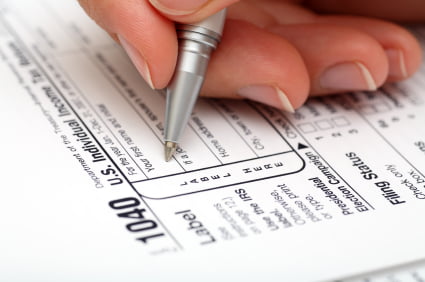As you get ready to file your tax return for 2012, don’t overlook many of the benefits that were ushered in when Congress passed the American Taxpayer Relief Act in early 2013.
This act – also known as the so-called “fiscal cliff legislation” – may work in your favor, particularly because it gives many parents some special tax breaks on their 2012 federal income taxes.
So even though the cost of raising kids continues to increase year after year, you can take advantage of several new tax perks in 2013 to offset some of those child-rearing expenses.
Here are 10 of the best tax deductions and credits for parents filing a 1040 form for the 2012 tax year:
#1: Dependent Exemptions
You can claim your child as a dependent on your tax return for 2012. Each dependent – a child under the age of 19 or a young adult under the age of 24 — you claim can reduce your taxable income by $3,800.
#2: Child Tax Credit
With the Child Tax Credit, parents can claim up to $1,000 for each child under age 17 for the next five years, under the new fiscal cliff agreement. Even if you don’t take the full credit, you may be able to qualify for the Additional Child Tax Credit to offset some of those taxes.
#3: Child and Dependent Care Credit
If you are paying for childcare services for a child under 13 years of age so you can go to work or are looking for work, you can claim the Child and Dependent Care credit and lower your tax bill. Parents can now deduct up to 35% of their childcare expenses, or up to a maximum of $6,000.
#4: Earned Income Tax Credit
This tax benefit is designed for low-to-moderate income taxpayers who may have earned income from wages, self-employment, or farming. The maximum Earned Income Tax Credit you can receive for 2012 is as follows: $5,891 with three or more qualifying children; $5,236 with two qualifying children; $3,169 with one qualifying child; $475 with no qualifying child.
#5: Adoption Credit
You might be eligible for a tax credit for qualifying expenses associated with adopting an eligible child. You can find more information about this credit by reading IRS Form 8839, Qualified Adoption Expenses. Just realize, though, that people who claim the adoption tax credit are far more likely to be audited by the IRS.
(In case you’re wondering, ‘What is the Adoption Tax Credit?’ here’s a quick explanation).
#6: Children with Earned Income
If your child has earned any type of income over the year, they may need to file a tax return. It’s likely that their income tax rate is lower than yours and this equates to benefits for the entire family. Refer to IRS Publication 501 for more information.
#7: Children with Investment Income
In some cases, a child’s investment income can be taxed at their parent’s current tax rate. Refer to IRS Publication 929, Tax Rules for Children and Dependents for more information.
#8: Higher Education Credits
The American Opportunity Tax Credit (AOTC) is an education credit that can reduce your federal income tax amount by allowing you to claim a partially refundable tax credit of up to $2,500 for qualified higher education expenses. Refer to IRS Publication 970, Tax Benefits for Education for more information.
#9: Student Loan Interest
You may be able to deduct the interest paid on a qualified student loan this year. The new laws regarding student loan interest allow for a deduction of up to $4,000 for tuition and other loan-related fees paid. Check out IRS Publication 970 for more information.
#10: Self-Employed Health Insurance Deduction
If you paid for your own health insurance because you were self-employed in 2012, you may be able to deduct premiums for your children under the age of 27 at the end of the year. These children don’t have to be dependents to qualify.








